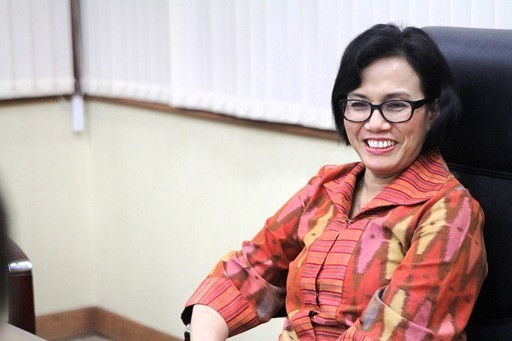News
Goodbye Sri Mulyani, hello uncertainty
Tenggara Strategics September 16, 2025 Sri Mulyani Indrawati (JP/Donny Fernando)
Sri Mulyani Indrawati (JP/Donny Fernando)
Sri Mulyani Indrawati has finally stepped down as finance minister after nearly 14 years of steering Indonesia’s economy through crises and reforms. Less than a year into President Prabowo Subianto’s presidency, one of the most capable and respected figures in government has been reshuffled out. The decision has sent shockwaves through financial markets and reignited fears about waning foreign investor confidence. Many are asking if this moment will once again prove to be “Indonesia’s loss, and the world’s gain.”
Her departure carries a striking symbolism. For years, Sri Mulyani has been Indonesia’s most experienced finance minister, providing a steady hand during turbulence, such as during the 2008 financial crisis and COVID-19 pandemic. Sri Mulyani’s reputation extended well beyond Jakarta, bolstered by her tenure as managing director of the World Bank. At home, she became the archetypal technocrat, balancing political demands with fiscal prudence and helping Southeast Asia’s largest economy stay on course.
Speculation about her resignation had circulated for months. A central source of friction was reportedly with President Prabowo’s free nutritious meal program. The flagship program was projected to cost over Rp 340 trillion (US$20.60 billion). The enormous fiscal price tag underscored the widening gap between Sri Mulyani’s cautious approach to state finances and the President’s big-ticket spending agenda. Her first serious resignation attempt came early this year, following an Rp 800 trillion budget cut orchestrated by State Secretary Prasetyo Hadi without her input. Prabowo refused her request to step down, believing her presence would reassure markets during an economic slowdown.
The second rupture came in August, when protests escalated into violent looting targeting several politicians. Sensing the risk, Sri Mulyani left her home and sought protection from Defense Minister Sjafrie Sjamsoeddin and Cabinet Secretary Teddy Indra Wijaya. To her alarm, only 20 soldiers were dispatched to confront around 1,000 looters who ransacked her house. This incident left her shaken and deeply disappointed. Again, she tried to resign, and again she was persuaded to stay.
The end arrived abruptly. Following weeks of speculation, Sri Mulyani was told just one hour before the swearing-in ceremony that she would be replaced, marking the close of an era. Markets reacted immediately. On Sept. 8, the Indonesia Stock Exchange Composite index fell 1.28 percent. Banking stocks led the decline, with Bank Central Asia down 2.27 percent, Bank Mandiri down 2.45 percent and Bank Negara Indonesia down 2.87 percent. In stark contrast, cigarette stocks soared, with HM Sampoerna up 17.76 percent, Gudang Garam up 12.50 percent, Wismilak Inti Makmur up 16.35 percent and Indonesia Tobacco up 11.61 percent. The rupiah’s weakness continued, sliding to Rp 16,433 per United States dollar, further intensifying investor unease.
Her departure deprived Indonesia of one of its most trusted guardians of fiscal discipline. Investor confidence eroded almost instantly, triggering capital outflows and a market downturn that illustrated just how tightly her credibility was woven into Indonesia’s economic story. The reaction has sharpened the lingering question: Can her successor fill her shoes, or has Indonesia allowed one of its brightest minds to slip away, only to see her talent flourish once again on the global stage?
Her replacement, Purbaya Yudhi Sadewa, arrives with a strong résumé. A former chief economist at Danareksa, a post at the now-defunct maritime affairs and investment coordinating ministry, and most recently a commissioner at the Deposit Insurance Corporation (LPS). Yet doubts remain whether his largely academic and institutional background can rival Sri Mulyani’s mastery of fiscal management and crisis response.
Market analysts have been quick to voice concerns. Jason Tuvey of Capital Economics warned of mounting pressure on Bank Indonesia to align with government spending priorities under a more pliant finance minister. Mohit Mirpuri of SGMC Capital went further, calling this the end of Indonesia’s fiscal credibility and raising alarms over renewed capital flight. Purbaya has countered, highlighting his 15 years of market experience and pledging readiness to restore stability.
Sri Mulyani’s exit represents far more than a routine reshuffle, it marks a turning point. For investors, it signals growing uncertainty. For policymakers, it presents a test of fiscal discipline under new stewardship. Whether Purbaya can reassure markets and assert independence will determine not only short-term sentiment but also Indonesia’s long-term economic trajectory. The legacy of Sri Mulyani remains undeniable, and Indonesia must now confront the challenge of sustaining credibility without its most trusted guardian.
What we've heard
According to several sources, before President Prabowo Subianto announced the cabinet reshuffle, Sri Mulyani Indrawati had already expressed her desire to resign as Finance Minister twice.

